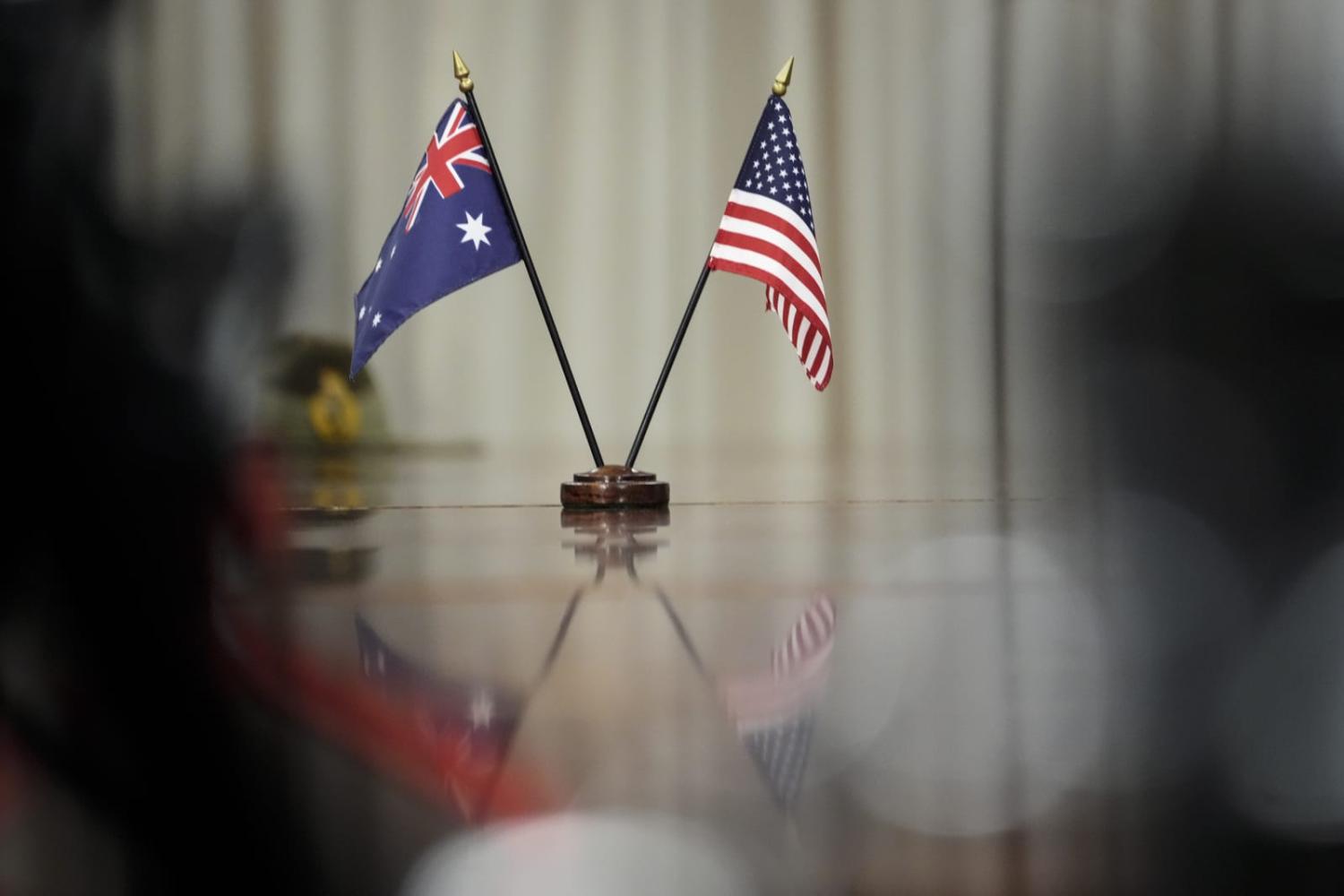As this week’s annual AUSMIN summit has confirmed, deeper strategic cooperation between Australia and the United States is accelerating. Yet, in the wake of the meeting and accompanying AUSMIN communique, it’s worth remembering the advice of Peter Shergold, former Secretary of the Department of Prime Minister and Cabinet, who has made the point that good policy depends on harnessing the views of those most likely to be impacted.
Shergold’s wisdom is typically invoked in relation to “domestic” challenges such as health, education, and tax reform. There is, however, no reason why it should not apply equally to foreign and defence policy. It would in fact be short-sighted not to apply it in relation to Australia’s single most important relationship, that with the United States.
Polling by the Lowy Institute, the US Studies Centre, and the Australian Election Study has shown consistently strong support for the Australia-United States alliance. Yet, these same polls also contain tantalising hints at some complex views that lie beneath the surface. Recent polling by the US Studies Centre shows that despite strong support for the alliance, 76 per cent of voters believe that Australia should develop a foreign policy “independent of the global powers”. The 2022 Lowy Poll revealed that while 87 per cent of respondents (equal to the highest since the Lowy Poll began in 2007) believed the alliance was “very” or “fairly” important for Australia’s security, 77 per cent of the same respondents agree with the statement that “Australia’s alliance with the US makes it more likely Australia will be drawn into a war in Asia that would not be in Australia’s interest”. How can this be?
To offer some answers, this week we published the findings of in-depth consultations across every state and territory regarding the current state and future of the Australia-US alliance. We engaged more than 230 Australians from diverse backgrounds about how Australia can best leverage the alliance with the United States.
Our research found that Australians’ views of the alliance can be grouped into four categories: full supporters who favour close integration of Australian and US defence efforts; reserved supporters who see benefits in the alliance but who also have concerns about the need to maintain a measure of independence from the United States; sceptics who aren’t convinced the alliance is necessarily benefiting Australia’s security and would like to see major changes; and opponents who see the very existence of the alliance as antithetical to Australia’s interests.
While these groupings capture the broad spectrum of views across the nation, in line with national polling data we found that more than two-thirds of those who we consulted supported the alliance. Our research also revealed several unifying themes emerging across the spectrum of respondents.
The first is that most Australians are not sure what the alliance means for Australia’s sovereignty and our capacity to make independent decisions. Fear of entrapment features prominently, particularly with respect to the AUKUS agreement for Australia to obtain nuclear-powered submarines, and how Australian support for US military operations against China might be taken for granted because of Australia’s increasingly intimate cooperation with Washington on cutting-edge military technology. Often this is a gut feeling, and generally reflects concerns about the Australian government’s capacity to manage the alliance.
Second, there is significant uncertainty among Australians about what the alliance is for today, as distinct from what it is against, or what it has been in the past. Most Australians are looking for an aspirational vision for the alliance that they can subscribe to.
Generalised notions of shared values do not resonate with Australians at a time when daily news on US debates about abortion, gun control, or election security serve to highlight differences rather than commonalities in our political cultures. Even if they disagree on whether it is a good thing, almost all Australians view the alliance unsentimentally through the prism of cost-benefit analysis: What do we get out of it for what we put in?
Third, Australians want broader cooperation between Australia and the United States that goes beyond defence, particularly to address climate change. Australians well understand and mostly value the close cooperation that has developed in the defence sphere – but this only raises the question of what both countries are doing to deliver on what they see as the other, equally important challenges facing Australia and the world.
Finally, whether they support or oppose the alliance, Australians think that relations with their immediate region are a crucial consideration. A majority of those we consulted held the view that Australia has not built the close regional relationships it could have, and that it is under-delivering in the alliance, including in the Southwest Pacific. Whether it is sceptics who think that the alliance prevents Australia from finding its own niche, or proponents who think we under-deliver for the common alliance cause, the consensus that Australia can and should do more to engage with our neighbours in the Southwest Pacific and Southeast Asia is striking.
When it comes to the future of the alliance, the views of the nation matter. By and large, Australians see the alliance as an “incomplete project”. They are neither unsympathetic towards America, nor unsupportive towards closer cooperation – but they do expect the alliance to develop in ways that clearly advance Australia’s national interests, and to be convinced by governments of all political shades that this is so.
Caitlin Byrne, Peter Dean, Stephan Früehling, and Andrew O’Neil are the authors of “An Incomplete Project”: Australians’ views of the US alliance. Funded by Australia’s Defence Department, the research undertook in-depth consultations with Australians across the country regarding the current state and future of the Australia-US alliance.

